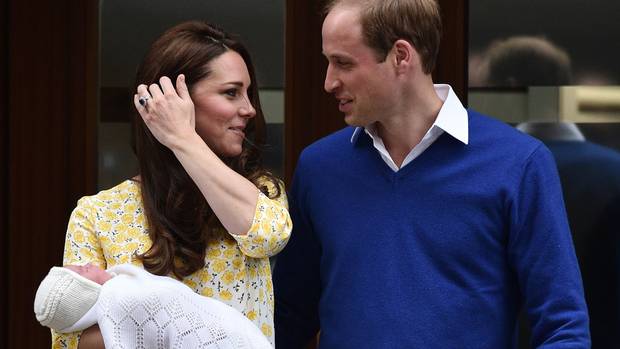Busy day? Here are five stories popular with Globe readers to help you catch up.
Canadians support increasing CPP benefits: poll
A new Nanos survey reveals 64 per cent of Canadians support increasing how much Canadians can put into a TFSA.
The survey was conducted for The Globe and Mail after the Conservative government’s April 21 federal budget, which increased the maximum annual contribution limit from $5,500 to $10,000.
But expanding the Canada Pension Plan would be an even more popular move, Bill Curry reports.
The survey found:
- 88 per cent of respondents support increasing the benefits Canadians receive through the Canada Pension Plan
- 52 per cent of those say they strongly support such a move
- 36 per cent say they somewhat support the idea.
- 6 per cent said they are somewhat opposed and 4 per cent are opposed.
In the days after the budget’s release, the Prime Minister portrayed the TFSA measure and the budget’s small-business tax cuts as an alternative to the opposition proposals related to the CPP.
Mr. Nanos said the strong support for CPP expansion could be driven by Ontario Premier Kathleen Wynne, who is promising a new provincial pension plan if Ottawa does not expand the CPP.
Manulife rewards customers for healthy habits
Manulife Financial offers rate reductions and incentives to its U.S. customers who demonstrate they’re focused on health - and a Canadian launch may not be far behind, Jacqueline Nelson reports.
Customers are rewarded for:
- Annual checkups, flu shots and gym visits
- Maintaining good levels of blood glucose, cholestrerol and blood pressure
- Eschewing tobacco
- And other health efforts such as mammograms, colonoscopies and dental screenings
The customer is ranked bronze, silver, gold or platinum and can earn a 5-per-cent to 15-per-cent discount on his or her premium the following year.
Each new applicant also gets a free Fitbit activity tracking bracelet for signing up.
Manulife thinks the message of improving health will have wide appeal and boost insurance sales at a critical moment.
The Canadian program still needs to get past regulatory approvals.

Baby princess has a name: Charlotte Elizabeth Diana
The new princess has been named Charlotte Elizabeth Diana.
Charlotte is a nod to the newborn’s grandfather, Prince Charles. The middle names honour the Queen, the infant’s great-grandmother, and Diana, the late Princess of Wales, William’s mother.
Bookmakers had taken huge amounts of bets on the name, with Alice, Charlotte, Elizabeth, Victoria, Olivia and Diana among the most popular guesses.
The baby will be known as Her Royal Highness Princess Charlotte of Cambridge.
The princess is fourth in line to the throne after Charles, William and her older brother Prince George.
Can early alcohol sips influence a child’s mind?
Parents who introduce small sips of alcohol to their young children often reason that they are better off learning how to drink in moderation at home.
It’s an approach in line with European tradition, where children are served small glasses of wine, along with cured meats and pungent cheeses.
But a growing body of research shows that the family-based approach, known as the “European drinking model,” may be outdated and is no longer having a protective effect, Adriana Barton found out.
When it comes to thwarting binge drinking among young adults, tiny sips may actually send mixed messages to impressionable minds.
For instance: In a three-year study of 561 Rhode Island students, kids who were allowed to sip wine or beer from their parents’ glasses “now and then” before the age of 11 were four times more likely to binge drink in high school.
Parents can play a role in their children’s attitudes about alcohol by modelling moderate drinking habits and communicating their values and expectations about alcohol use.
But parental influence only goes so far. And in cultures where “getting wasted” is synonymous with having fun, early tastes of alcohol may not be harmless.
Alberta election: Where the parties stand on the top campaign issues
As Albertans head to the polls Tuesday, no one is certain who will come out the winner.
Here’s Madeline Smith’s overview of where the parties stand on key issues (especially handy if you live in Alberta and haven’t figured out who to vote for yet):
Taxes:
Progressive Conservatives
- Abandon the province’s longstanding 10 per cent flat income tax and increase taxes over three years for those making more than $100,000 annually
NDP
- Increase Alberta’s corporate tax rates to 12 per cent, up from 10 per cent
- Increase tax rates for the top 10 per cent of earners in the province
Liberals
- A 9.5 per cent tax on income less than $50,000; a 15 per cent tax on earnings more than $250,000
- Eliminate taxes for small businesses earning less than $500,000, and increase corporate tax rates by 2 per cent.
Energy:
Progressive Conservatives
- Prentice has said the party “will fight for every pipeline project,” including Keystone XL.
NDP
- Withdraw support for the Northern Gateway pipeline, but interested in proposals to expand the Trans Mountain line and build the Energy East pipeline to Atlantic Canada.
Liberals
- Will scrap the Carbon Capture and Storage fund
- Will offer incentives for renewable energy projects, but have called pipelines “reliable and safe.”
Education:
Progressive Conservatives
- Enhance financial aid for post-secondary students and work on a long-term plan to find more stable funding for universities and colleges.
- Post-secondary research should align with “the government’s efforts to diversify Alberta’s economy.”
NDP
- Promises “stable, predictable” funding to school boards and post-secondary institutions.
- Implement a postsecondary tuition freeze and restore the Summer Temporary Employment Program, which offers job placements for young people
- Lower class sizes and phase in all-day kindgergarten
Liberals
- Promises to reduce post-secondary tuition fees and offer more grants and bursaries
- Move toward universal childcare and all-day kindergarten.
Follow Kat Sieniuc on Twitter: @katsieniuc